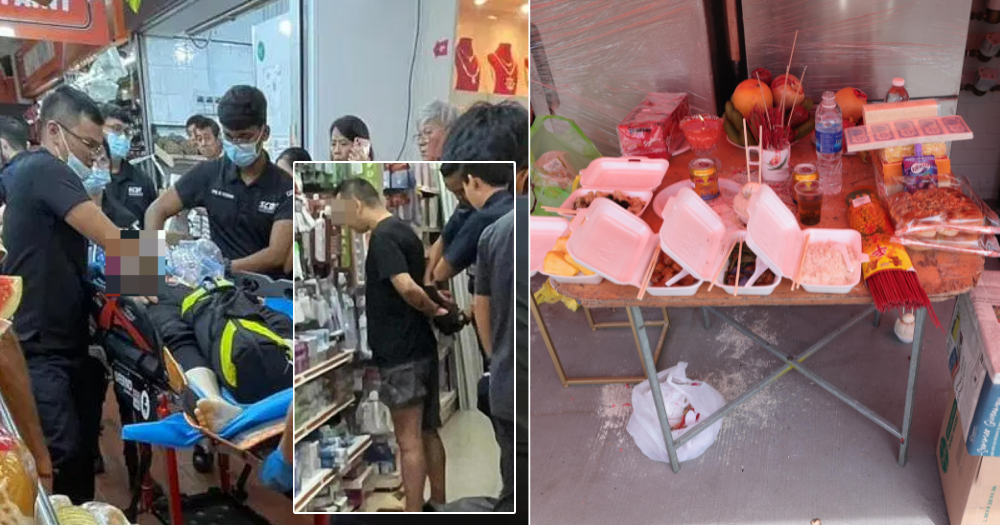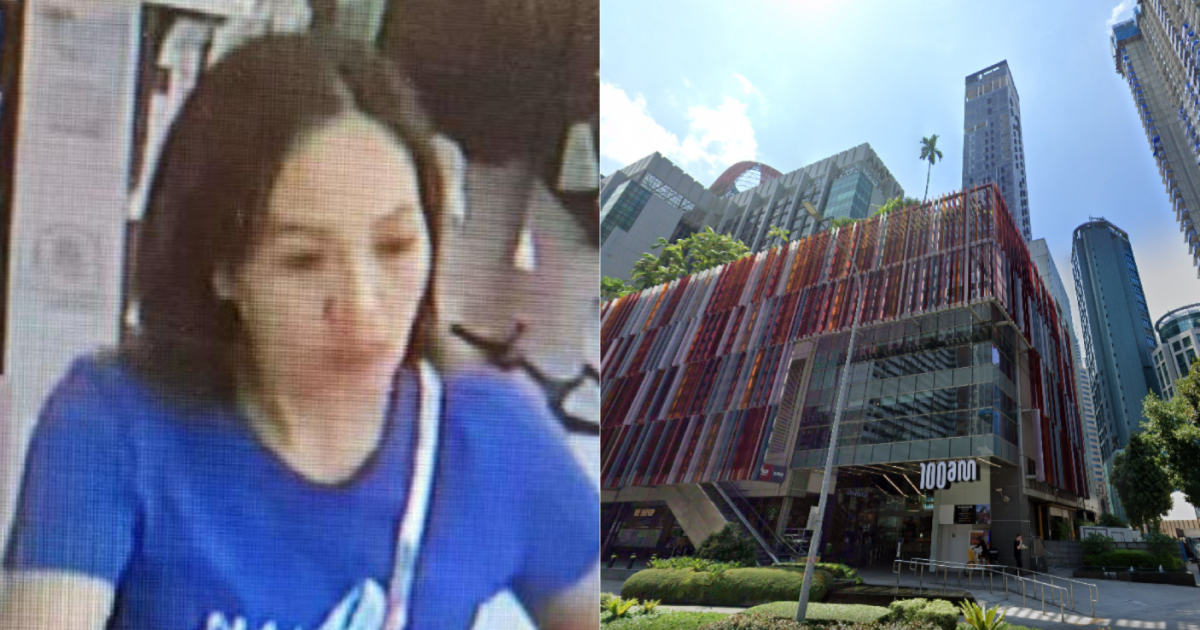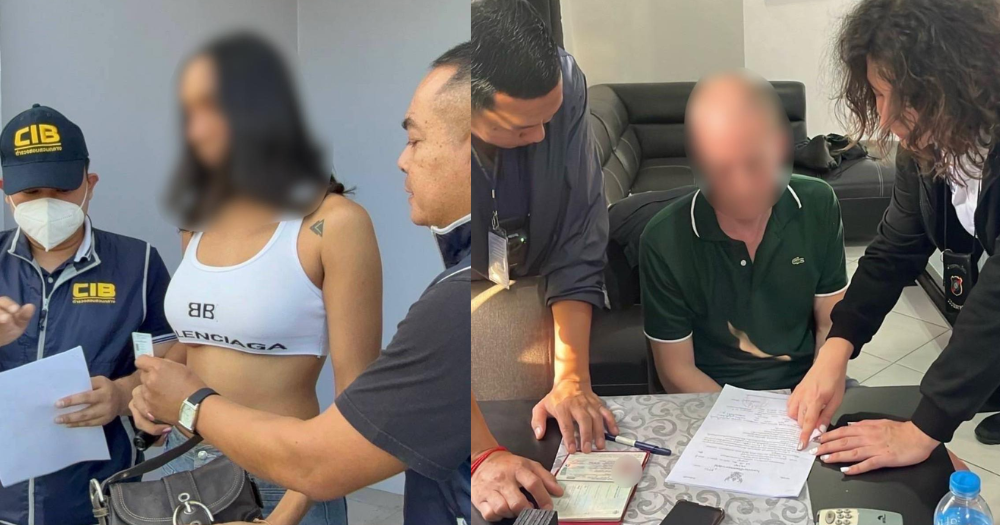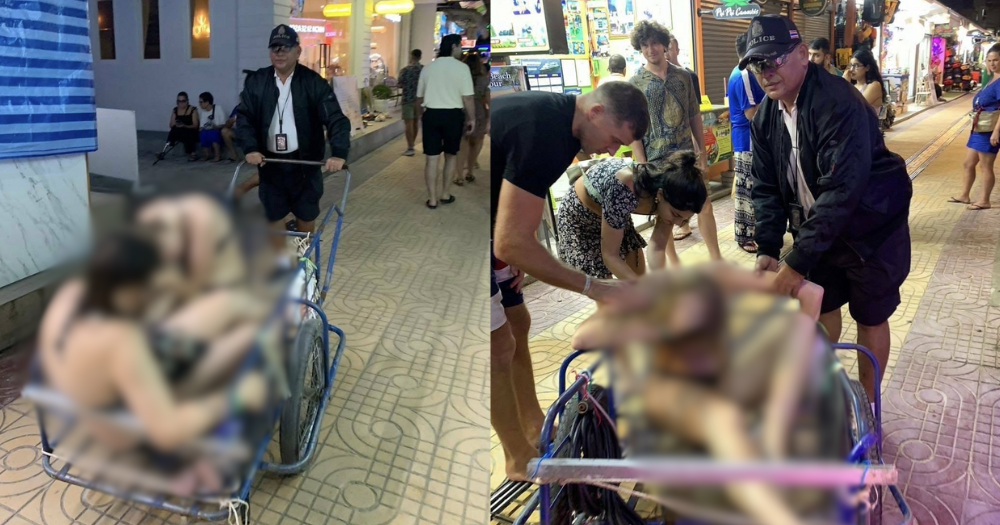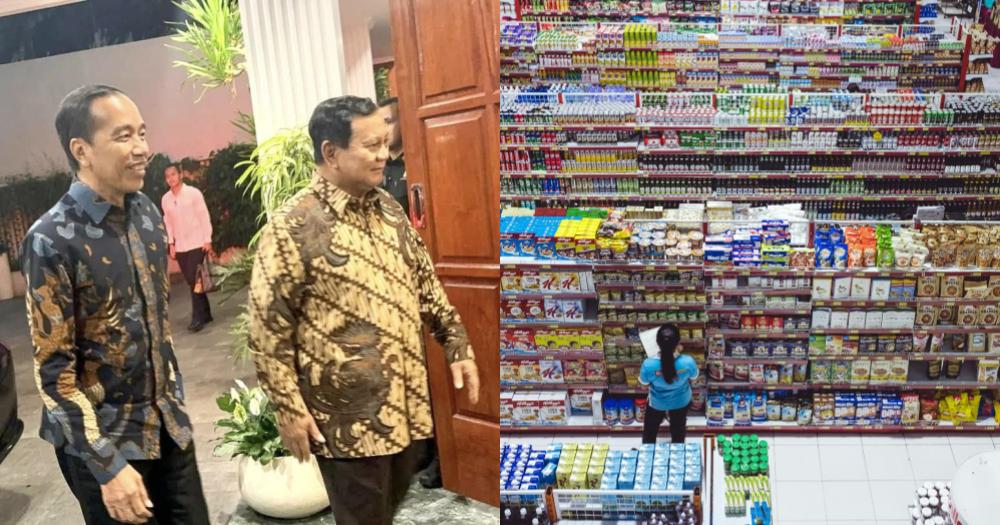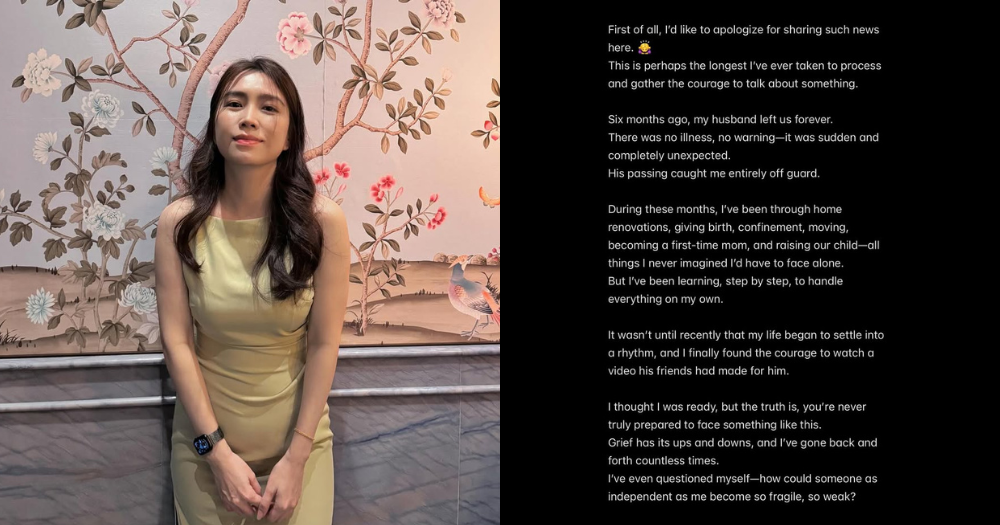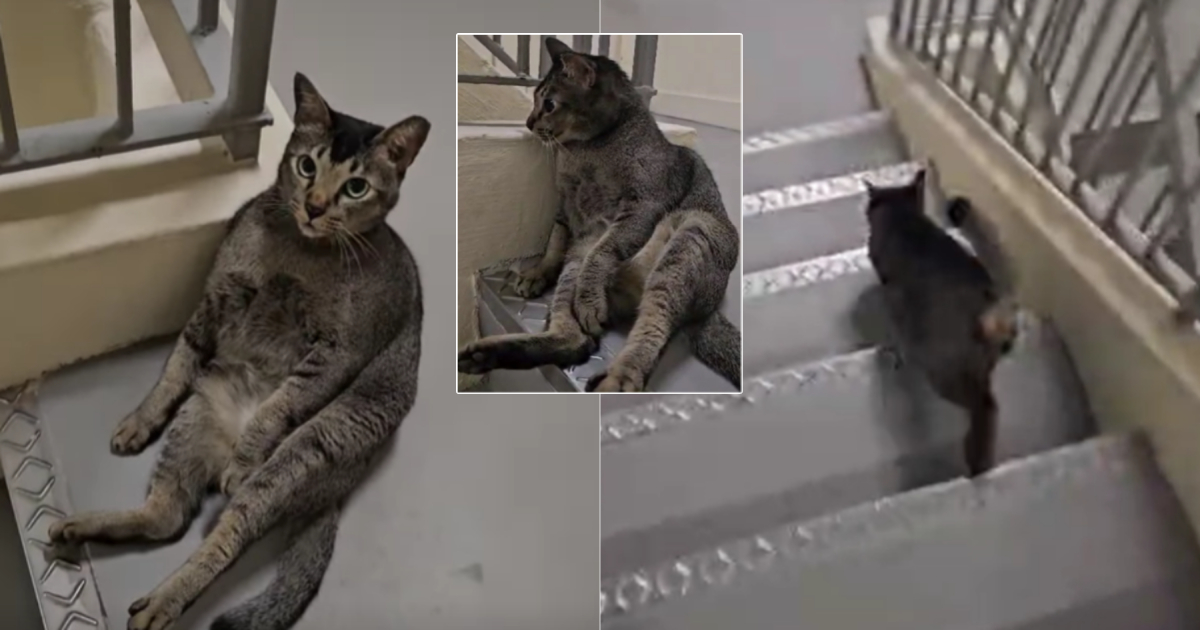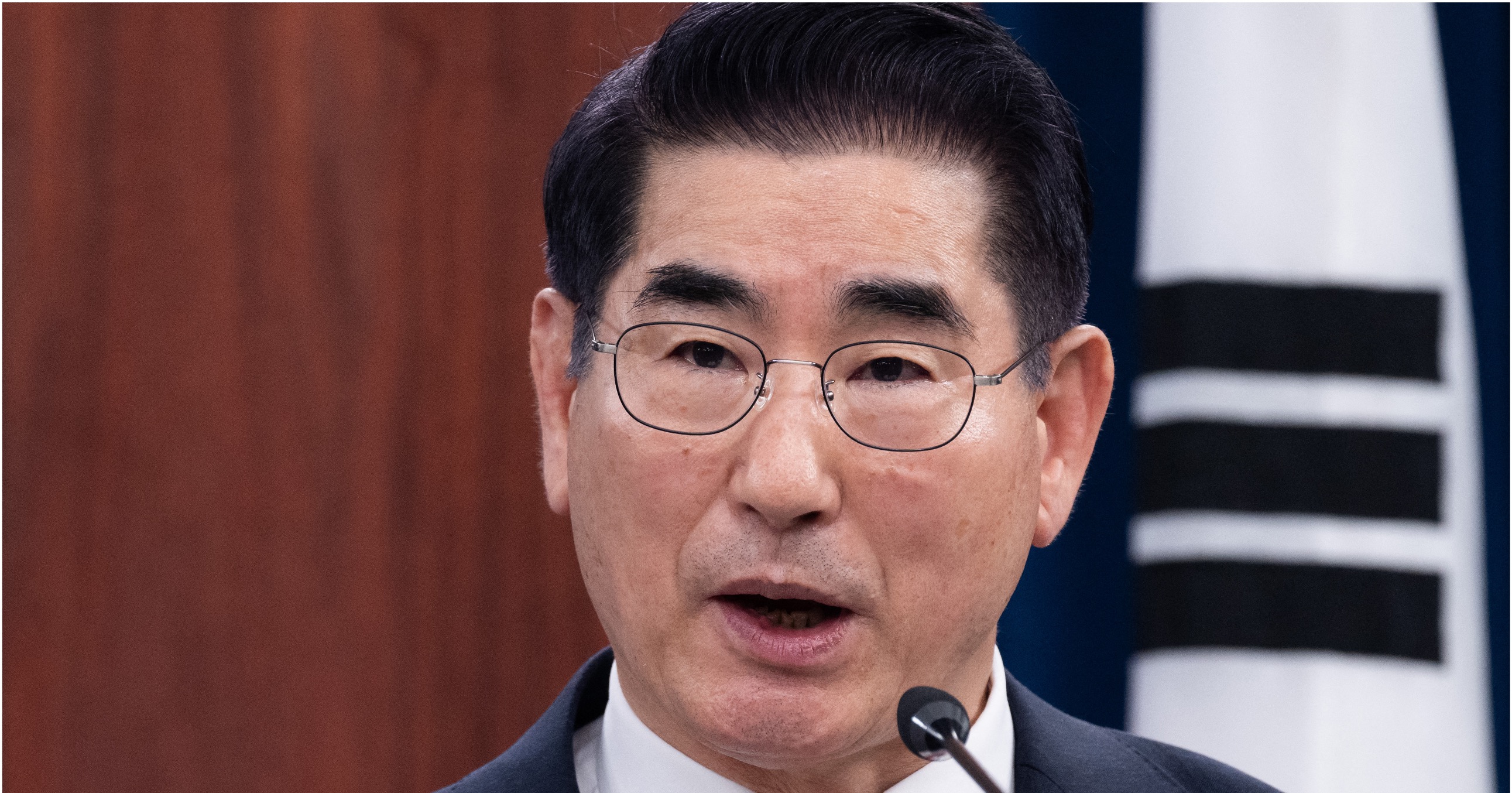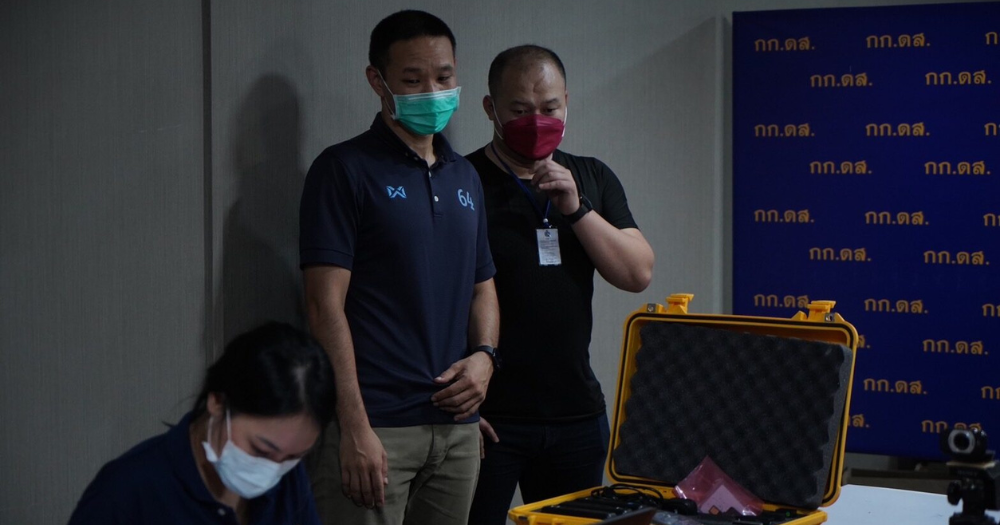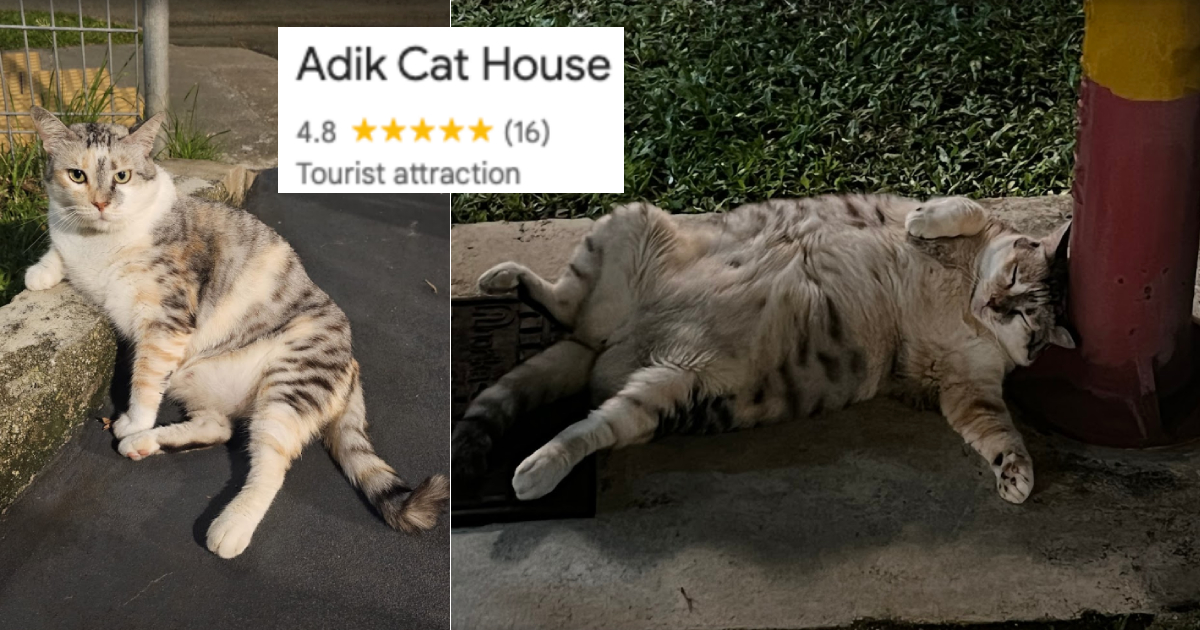Man gets 16 months' jail after being caught with 58 star tortoises in luggage at Changi Airport
One of the tortoises died.
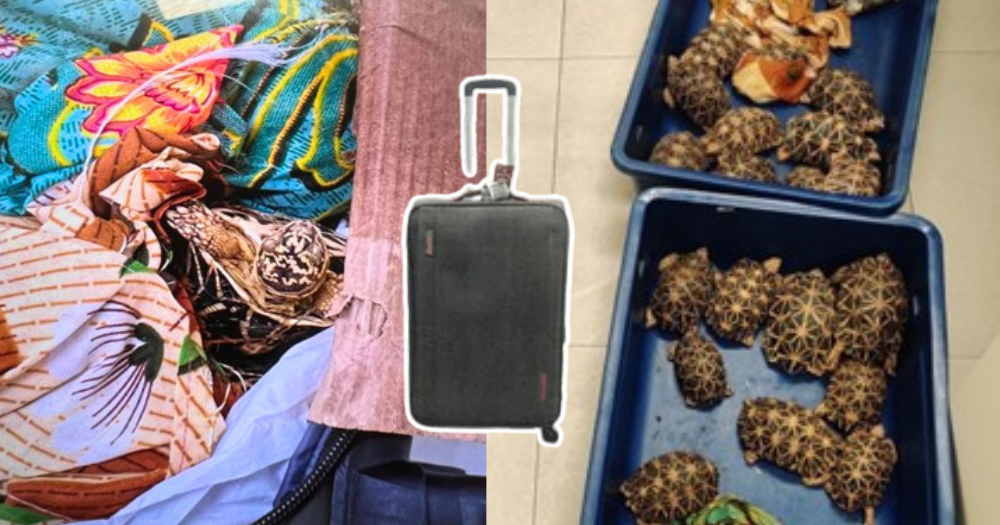
A man who was caught smuggling 58 Indian star tortoises at Changi Airport earlier this year in August has been sentenced to 16 months' imprisonment.
According to court documents seen by Mothership, Abdul Jaffar Haji Ali had been tasked by a friend to bring the luggage containing the tortoises to Jakarta, Indonesia.
Immigration Checkpoint Authority (ICA) officers then uncovered the live tortoises when the man was transiting at Changi Airport Terminal 2 on Aug. 29, en route from India.
Was told luggage contained "ladies' clothing"
Abdul Jaffar, who is an Indian citizen, was travelling to Indonesia for a holiday, as well as to purchase women's clothing for his business in India, court documents wrote.
However, his friend who court documents referred to as "Bhai", had requested for Abdul Jaffar to assist him in transporting a luggage he had packed to Jakarta.
In exchange, Bhai would pay for Abdul Jaffar's flight and arrange his accommodation.
The intended recipient would collect the baggage from Abdul Jaffar upon his arrival in Indonesia.
On Jul. 16, a day before Abdul Jaffar's flight to Jakarta, Bhai shared with him a news article about the seizure of star tortoises in India.
However, Abdul Jaffar did not question Bhai about the reason behind sharing the article.
On Aug. 28, Abdul Jaffar met Bhai at Chennai International Airport to collect the luggage packed by Bhai at around 11am (India time).
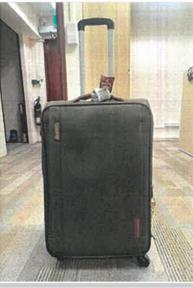 Photo from NParks
Photo from NParks
Bhai thereafter told Ali that an acquaintance would meet him in Jakarta to bring him to the luggage's intended recipient.
Throughout this, Abdul Jaffar did not ask Bhai about the luggage's contents, and was informed by Bhai that it contained ladies' clothing.
"At all material times, the accused had ample opportunity to check and verify the contents of the luggage himself in the presence of Bhai," court documents stated.
Uncovering the tortoises
An anomaly was first detected when the luggage was screened by the ICA.
ICA officers opened the soft case luggage in Abdul Jaffar's presence to find 58 Indian star tortoises hidden in the luggage.
The tortoises were found wrapped in a cloth bundle.
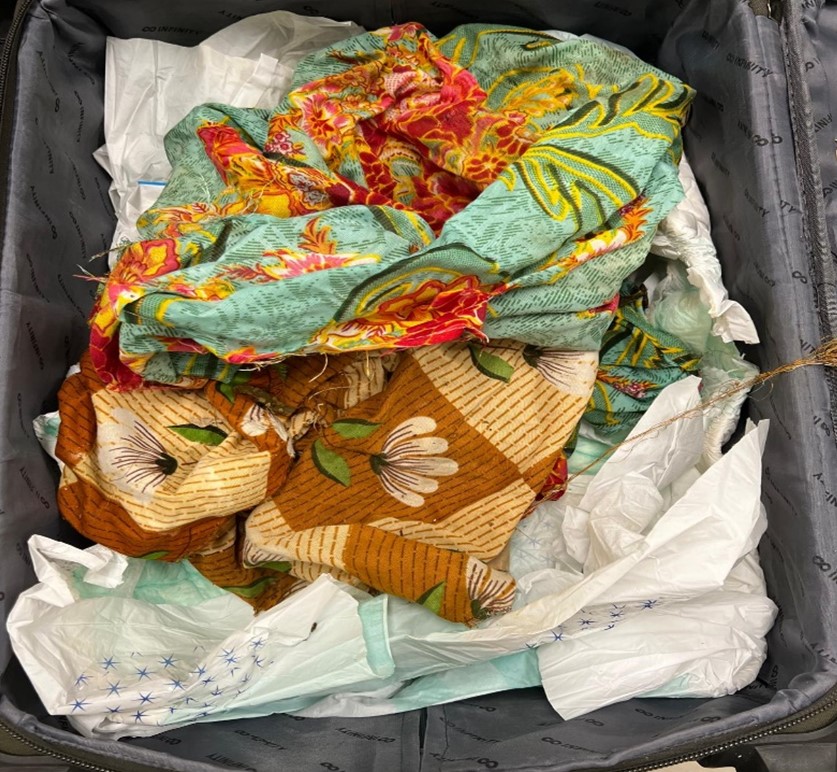 Photo from NParks
Photo from NParks
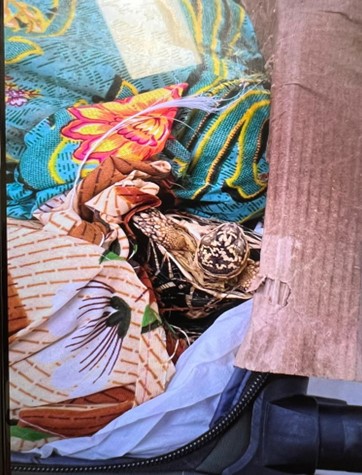 Photo from NParks
Photo from NParks
Upon this discovery, the matter was referred to the National Parks Board, and the tortoises were sent to the agency's Centre for Wildlife Rehabilitation (CWR) for examination.
Of the 58 tortoises, one was found dead, though without any "overt signs of injuries or diseases".
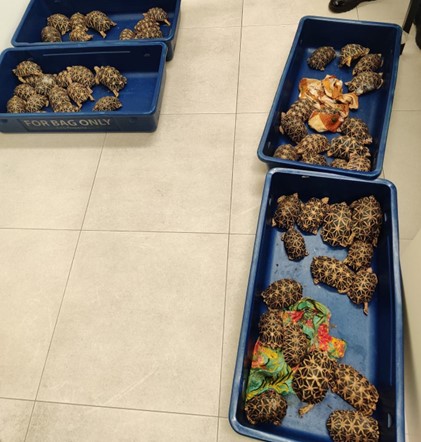 Photo by NParks
Photo by NParks
22 tortoises were assessed to be thin, while the remaining 25 were of acceptable weight.
Overall, the creatures were assessed to be in "slightly poor to acceptable health conditions."
According to a vet who examined the tortoises at the CWR, the transportation conditions did not meet the standards prescribed in the International Air Transport Association's (IATA) guidelines on the safe and humane transport of animals.
Some conditions that caused the tortoises "unnecessary suffering" are:
- The lack of ventilation which could lead to suffocation, heat stress and hypothermia.
- The soft case luggage was not sturdy enough, which could lead to the tortoises being crushed.
- The tortoises were packed in "too high a stocking density" in a small, confined space, which could lead to suffocation and heat stress.
Not allowed as pets
According to the Endangered Species (Import and Export) Act (ESA), the Indian star tortoise is a scheduled species.
Scheduled species in transit in Singapore require a prescribed document and valid permit issued by the Director-General of Wildlife Trade Control, which Abdul Jaffar did not have.
Indian star tortoises are listed as "Vulnerable" according to the International Union for Conservation of Nature.
The species is also not allowed as a pet in Singapore.
In a statement to Mothership, NParks stated that Singapore does not allow the keeping of certain animals as pets for the following reasons:
- Wildlife can harbour diseases which could be introduced and spread to humans and domestic animals.
- Collection of wild animals for trade will lead to ecosystem imbalance and threaten the survival of endangered species.
- Unsuitable living conditions, poor diet and pet owner's lack of knowledge of the proper care for the animal may affect animal’s welfare.
- Exotic pets may negatively impact Singapore’s native biodiversity if released in the wild.
Those with information on suspected poaching, smuggling or illegal trade of pet animals and wildlife can report them to NParks via www.avs.gov.sg/feedback.
They can also contact NParks' Animal Response Centre at 1800-476-1600, or Acres at +65 9783 7782.
Related stories
Top image from NParks
MORE STORIES








